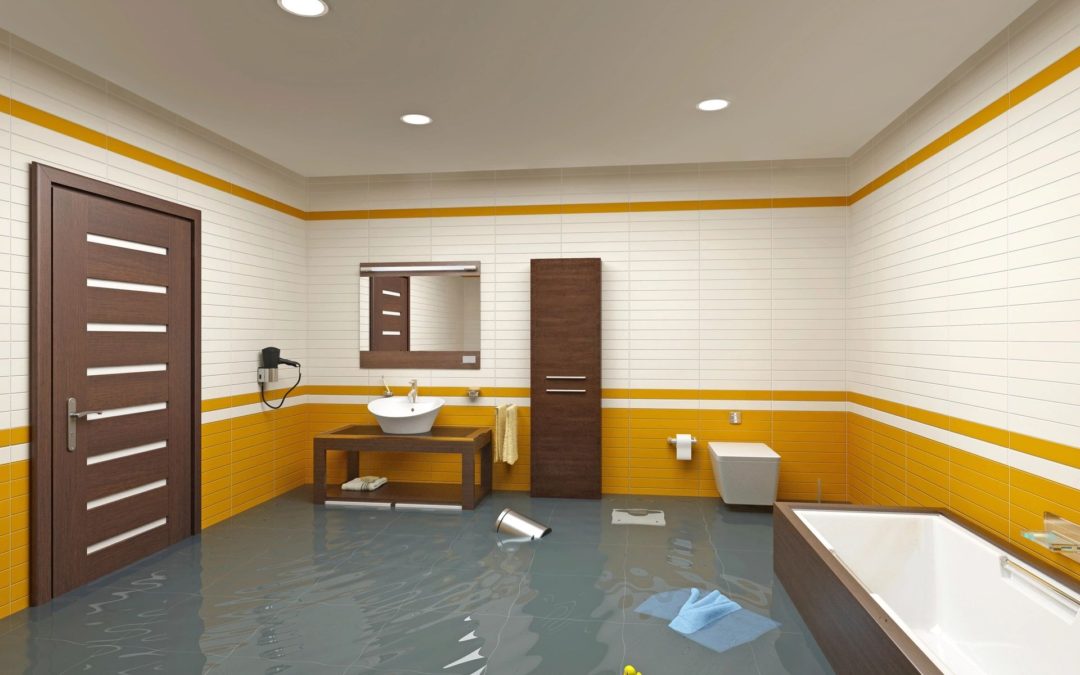how To Get Insurance To Pay For Water Damage

Anyone who even occasionally watches the news has seen footage of disasters and the damage they cause to homes. One of the major damage-dealers in homes is water damage. In fact, it ranks as the costliest insurance claim, with a $2.5 billion average annual cost to insurance companies and nearly $7,000 per claim.
You might rest easy at night knowing youre insured, but what actually happens when disaster strikes?
In reality, the road from disaster to a fully restored home is long, stressful, and time-consuming. In this guide, well go over the types of water damage covered by most insurance, important things to consider in your policy, and an outline of the claims process.
What Types of Water Damage are Covered?
There are many different homeowners insurance policies out there. So its no surprise they dont all cover the same things to the same degree. Generally speaking, though, most insurance policies take the same stance on what type of events they will cover.If your water damage is caused by a specific event with immediate resulting damage, you are likely covered (with one exception youll read about in a bit).
Natural Disasters
Natural disasters like hurricanes, storms and earthquakes cause massive amounts of damage to large areas. Just a week after Hurricane Sandy pummeled the Northeastern United States, insurance claims were estimated to total $20 billion.Your biggest priority during an event like this is to make sure you and your loved ones are safe. As soon as the danger is over, you can start the insurance claim process and figure out your next steps.
Sudden Damage
Sudden damage can occur at any time. Freezing pipes bursting in the winter, ruptured water mains, or malfunctioning appliances in your home are all examples of sudden damage.Sudden damage events will be covered by most policies, but make sure you read the fine print. Coverage is based on the condition that youve been doing regular maintenance on your property. If that water heater you havent serviced in 20 years suddenly turns your basement into a small lake, youre probably out of luck.
What Types of Water Damage are not Covered?<.h4>
Sadly, there are some situations where your insurance company wont be able to help you. Some are preventable, while others require a different type of insurance altogether.
Gradual Damage
If your water damage is the result of a long-standing, unresolved problem, its going to be hard to convince your insurance company to pick up the tab. Plumbing systems dont last forever, and your insurance company assumes that you, the homeowner, will do your part in staying on top of the upkeep of your property.The takeaway? Make sure you address seemingly minor problems like water leaks and pressure fluctuations as soon you discover them. If you let these things spiral out of control, you may end up footing the whole bill yourself.
Floods
Floods are the one type of natural disaster that almost no homeowners insurance policy will cover. This might seem unfair or counterintuitive, but theres a reason for it: flood coverage isnt profitable enough for most insurance companies to offer it.If you live in an area thats prone to flooding, you might want to look into flood insurance.
Source of Damage
What exactly does source of damage mean? Lets say youre away for the weekend and your washing machine goes haywire. You get home to find a squishy, swampy mess complete with ruined carpet and furniture.Your policy will help you recoup any damage to your home and personal items. But your washing machine is considered the source of damage, and wont be covered. All the more reason to read the fine print.
Understanding Your Insurance Policy

Insurance policies lay out all the things that your insurer will or will not cover in your home. Theyre generally exhaustive and lay out every possible situation to avoid any legal troubles that may arise from a claim.AVIVA, a UK-based insurer, has a 39-page home insurance policy. Luckily, most policies are pretty straightforward and you can always get your agent on the phone if you need something cleared up. Here are some important things to look out for when reviewing your policy:
Deductible
The deductible is the amount of money you have to pay out-of-pocket when filing a claim. Better insurance policies have lower deductibles, but the trade-off is a higher monthly premium. Consider the deductible very carefully before choosing coverage.
Dwelling Coverage
Dwelling coverage is the part of your policy that covers your home itself and any attached buildings on your property. Coverage is subject to a deductible as well as a limit (the maximum amount your insurance provider will cover).
Personal Property Coverage
This covers any items in your home that were damaged in the accident. There are two kinds of personal property coverage and its important to know the difference.
Actual Cash Value coverage means your provider will cover the depreciated value of your damaged items. You wont get back what you paid for that flat screen TV, but whatever the current resale value of that model is (and they get to decide on that).
Replacement Cost coverage, which is the best way to go, means your provider will compensate you based on how much it would cost to go out and replace everything brand-new.
How To File A Claim
Call Your Insurance Company
The first person youre going to speak to is your agent. Take care of immediate concerns like safety and call your agent when youre ready.Calling as soon as you can is important. If you wait too long and your home suffers greater damage over time, you might not be covered for all the damages.This is also a good time to ask about additional living expenses. If your home is currently uninhabitable, theres a good chance that your insurance provider will cover any temporary housing costs you incur.
Take an Inventory of Damaged Items
Make sure you go through and document every single item that was damaged in the accident. Take photos, make a list, and dont throw anything away. The more proof you have to show your adjuster, the better.
Meet With the Adjuster
After you speak to your agent, theyll arrange to send an adjuster over to your property. The adjuster assesses the damage and ultimately decides how much coverage youll receive from the insurance company.Keep in mind that your adjuster works for the insurance company. At the end of the day, they want to pay out as little as possible. Dont let them trivialize the damage or bait you into admitting blame in the incident.
Find a Contractor
To actually repair your homes damage youre going to need to find a contractor. Your insurance company will likely have a contractor theyll recommend for you. You can also shop around and look for one one your own.Just remember, the rebuilding process involves several steps. The property must be cleared of debris before any work can be done. And everything must be done according to local codes and regulations.When you meet with a contractor, ask for a written estimate detailing the costs of all supplies and labor and a detailed breakdown of all the work they plan on doing. Ask for their license number and do some research to make sure youre dealing with a reputable contractor.
Putting it all Together
Once youve gotten a written estimate from a contractor and have an inventory of your damaged items, you have to meet with your adjuster for a final approval.If your contractors estimate is higher than your adjusters damage assessment, you have a few options. You can request for your adjuster to try to negotiate a better deal with your contractor. If you feel that your adjuster was off in his assessment, you can call your agent and plead your case. If both those options are off the table, youre going to have to seek out a different contractor.
When the adjusters assessment, the contractors estimate and your inventory of damaged items are all in agreement, you can sign the insurance claim. Your provider will let you know if you need to pay a deductible (in some disaster scenarios your deductible may be waived depending on your provider) and will issue you a check.The insurance claim process is a daunting experience. Stay calm, read your policy (twice!) and go through the steps. If you feel like youre being given the short end of the stick, speak up.